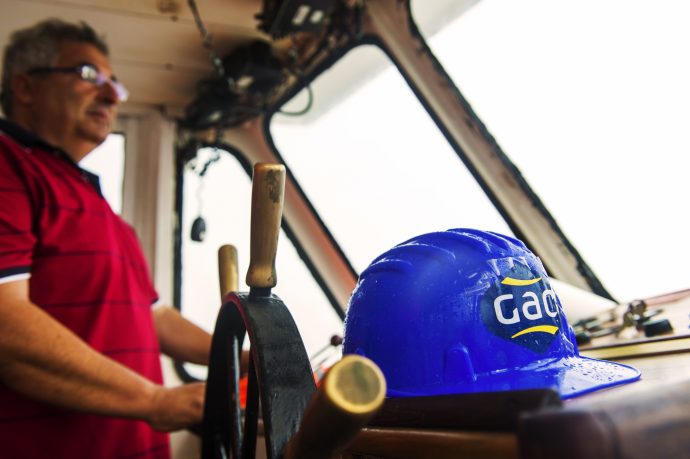The world of merchant shipping has been evolving for the past 5,000 years, with shipbuilders and owners continuously striving to improve their fleets' carrying capacity and reduce the risk of wrecks and mishaps. On its surface, merchant shipping is a technological juggernaut: a sophisticated, high-value, global enterprise with a momentum that keeps billions of us fed, housed, employed and entertained.
However, at 2am, when an alarm triggers, things get a whole lot simpler for any owner or charterer. This is the time when we get our agent out of bed, have them find out the details and thereafter charter, import, hire, sign, authorise, submit, release, certify, copy, print and execute whatever is needed to solve the problem.
“Whether we’re stuck on a sandbar or stuck in red tape – often both – you need more than high-tech communications, remote-analysis, and data dashboards,” says Ian Boyd, GAC’s Group Sales Director, Shipping. “You have to talk to someone on the ground. It’s one of the binding roots of commerce.

Boyd recalls the reactions of customers and agents when Covid restrictions started lifting. As soon as owners and agents could get out of their slippers and start meeting up again, they did. “And they did with gusto,” says Boyd. “There was a pent-up need to have the watercooler conversations, the casual asides that spark a business idea.”
“This need to know the person who’ll be looking after our affairs in far off places – it’s as old as the Silk Road.”
A matter of trust
A lasting business relationship boils down to trust, defined in the Collins Dictionary as a firm belief that someone is ‘honest and sincere and will not deliberately do anything to harm you.’ The potency of trust lies in its simplicity and the long history of merchants who have relied on it. It is the thing that remains standing when you strip away the tech, the protocols, and all the other wordage and verbage that surrounds business today.

“It’s that simple certainty that I can call my agent and get matters sorted,” says Boyd. “I don’t need to check, I don’t need to fret. I have my agent on the ground and on the case.” Yet Boyd is quick to recognise that trust doesn’t come out of nothing. It is built. It is earned.
The main game
So we come to the main challenge that faces any shipping executive: how to turn good intentions into solid, trusting business relationships. For Ian Boyd, long years of experience have reduced the requirements to a few precepts:

A lot of issues can be solved with smart technologies. Information flies around the globe at the speed of light offering us all manner of updates, insights and so forth. When everything runs smoothly, the tech solution is probably the best. But 5,000 years of seafaring history tells us that this business is never smooth, or at least never smooth for long. Having the right people in the right place can make all the difference.